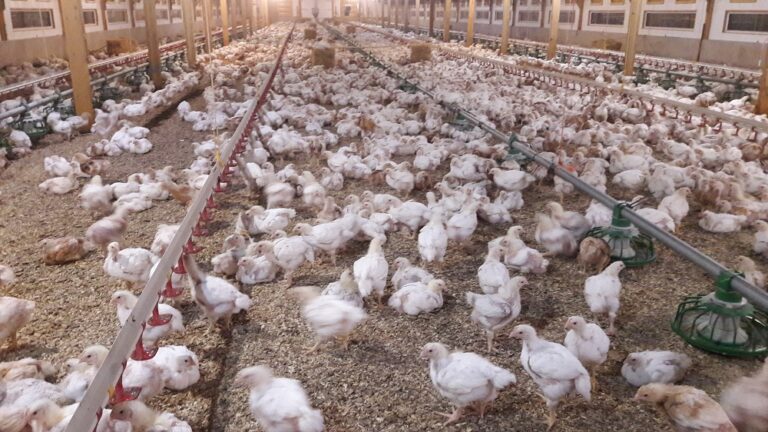Computer models will be built to forecast how Marek’s disease – a highly contagious viral infection affecting chickens – transmits from bird to bird and how it evolves to become more harmful.
The models could enable development of effective vaccines and control strategies to prevent outbreaks.
Researchers at the Roslin Institute at Edinburgh University will also determine the combined effects of vaccination with bird and virus genetics on how viruses spread and evolve to higher virulence.
The study will focus on Marek’s disease and infectious bronchitis viruses, which are currently controlled by imperfect vaccines and cost industry billions of dollars of losses each year.
The study has been awarded £3.1 million by the US National Science Foundation and the UK Biotechnology and Biological Sciences Research Council, and will be led by Dr John Dunn and Dr Hans Cheng at the US Department of Agriculture’s Agricultural Research Service. The UK component of the study will be led by Professor Andrea Doeschl-Wilson and Dr Sam Lycett at the Roslin Institute.
The effectiveness of current control approaches for each virus, such as vaccines and selective breeding, will be determined by analysing data from more than 7,000 birds.
Researchers will investigate how the viruses evolve as they are transmitted up to 10 times, by comparing effects in vaccinated and non-vaccinated chickens, and in chicken that differ in their genetic resistance to the virus.
Scientists hope to discover common variations in the genetic code of the birds and viruses that are linked to higher virulence and to the ability of the viruses to evade immune surveillance.
To achieve this, they will compare the genetic makeup of the most virulent variations of the viruses – those that have been transmitted 10 times – with the original virus that infected the first chickens.
All this data will feed into computational models that simulate transmission and evolution of Marek’s disease.
“This is the first study that investigates the combined influence of vaccination, host and viral genetics on how viruses are transmitted and evolve to higher virulence. We hope that our models can inform future control strategies to help tackle the health, welfare and economic burden of Marek’s disease as well as other poultry viruses,” said Professor Andrea Doeschl-Wilso nPersonal Chair in Animal Disease Genetics and Modelling, Roslin Institute.


